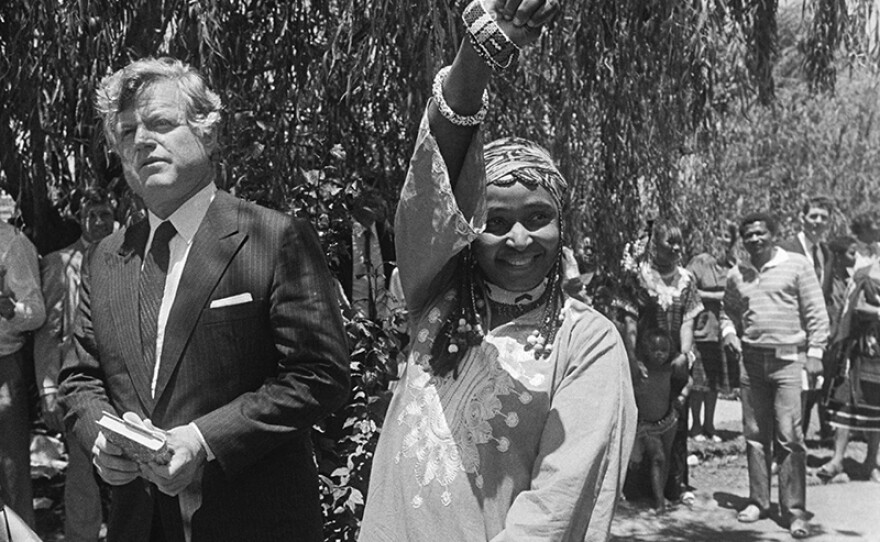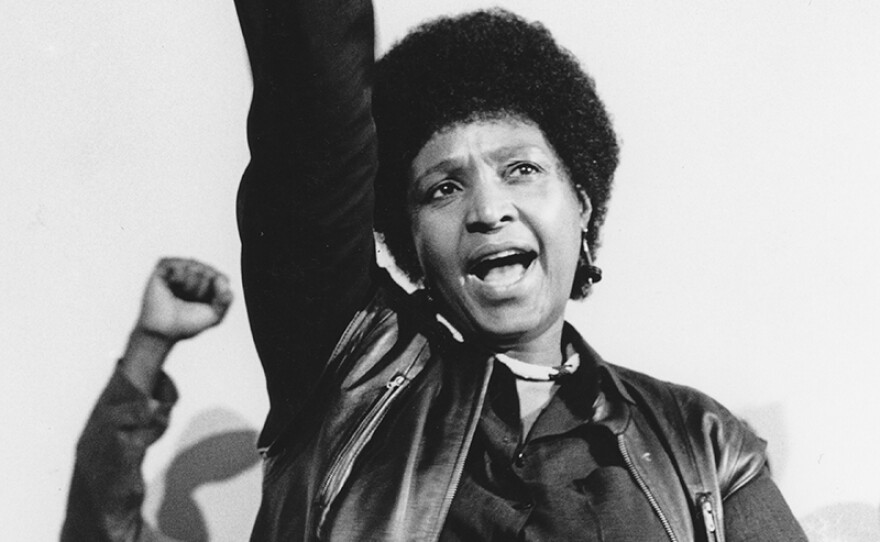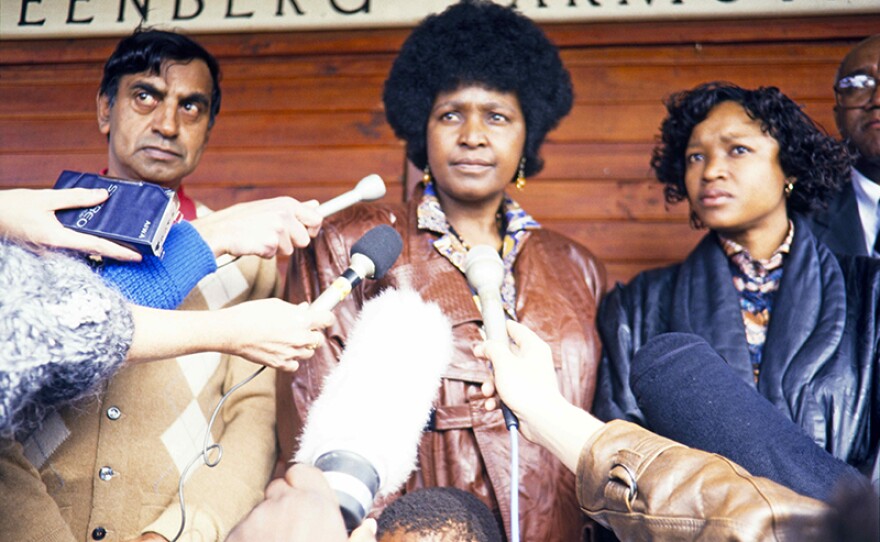—New Portrait of Winnie Mandela Reveals the Powerful South African Freedom Fighter and the Forces That Sought to Bring Her Down—
Winnie Madikizela-Mandela is one of the most misunderstood and intriguing of contemporary female political figures. Her rise and seeming fall from grace bear the hallmarks of epic tragedy.
For the first time on screen, "Winnie" explores her life and contribution to the struggle to bring down apartheid from the inside, with intimate insight from Winnie herself, those who were closest to her and the enemies who sought to extinguish her radical capacity to shake up the order of things.
Directed by Pascale Lamche, “Winnie” premieres on INDEPENDENT LENS, Monday, Feb. 5, 2018 on PBS.
While her husband Nelson Mandela was jailed for 27 years, Winnie lived a tumultuous life far from the safety of exile abroad.
She came to symbolize the oppression of her people, and during the long years in which the African National Congress (ANC) languished in exile and incarceration her fearlessness incited them to get organized.

She was the barometer for the political temperature of the country and willingly brushed patriarchal and conservative conventions aside.
During the long struggle, Winnie remained her husband’s eyes and ears on the ground, his closest advisor.
But her insistent and often militant stance did not sit well with the powers that be.

She became the target of a government-sponsored smear campaign, her inner circle was infiltrated with spies and she was eventually betrayed by many of those she most trusted.
Once change became inevitable, and as secret negotiations began for the release of her husband, the ‘Winnie Problem’ began to receive a new kind of attention.
“They tried to pitch my parents like the Saint and the Sinner,” their daughter Zindzi recounts, “and you’re thinking: ‘What even gives you the right?’”

The country’s leaders soon faced stark choices in the difficult transition to democracy and the stakes were high.
The final act of the film traces a roller-coaster ride of fascinating political intrigue as the Mandela marriage is torn apart with significant consequences for Winnie and the future of the country as a whole.
FILMMAKER QUOTES:
“I made three films in South Africa and interviewed Nelson Mandela for two of them, but I was always intrigued by Winnie, and felt a little unsettled by the adulation that was poured on her husband, while she was cast as the fallen woman,” says filmmaker Lamche. “Her reputation among people I encountered in Europe and the States was unshakably negative and yet in South Africa, Winnie was loved and respected. I became more and more fascinated by the wide chasm between the two images. Something was amiss. A story needed telling.”
“We study the contributions of leaders like Nelson Mandela, Desmond Tutu, and Oliver Tambo who fought to end apartheid in South Africa,” said Lois Vossen, INDEPENDENT LENS Executive Producer. “Yet the decades-long impact of Winnie Mandela is often overlooked. Highly provocative and unapologetic, her personal story, like that of many leaders, is flawed. Although deeply controversial throughout her life, the former wife of Africa’s first Black president is seen by many in her country as the mother of the anti-apartheid movement, and Winnie is proof that women cannot be written out of history.”

WATCH ON YOUR SCHEDULE:
This film will be available to stream on demand for a limited time after broadcast.
JOIN THE CONVERSATION:
INDEPENDENT LENS is on Facebook, Instagram, and you can follow @IndependentLens on Twitter. #IndieLensPBS.
CREDITS:
Written and Directed by Pascale Lamche. Producer: Christoph Jörg. Directors of Photography: Olivier Raffet and Felix Meyburgh. Editor: Giles Gardner. Original music by Daniël Hamburger. Production Company: Pumpernickel Films. Lois Vossen is executive producer for INDEPENDENT LENS.





